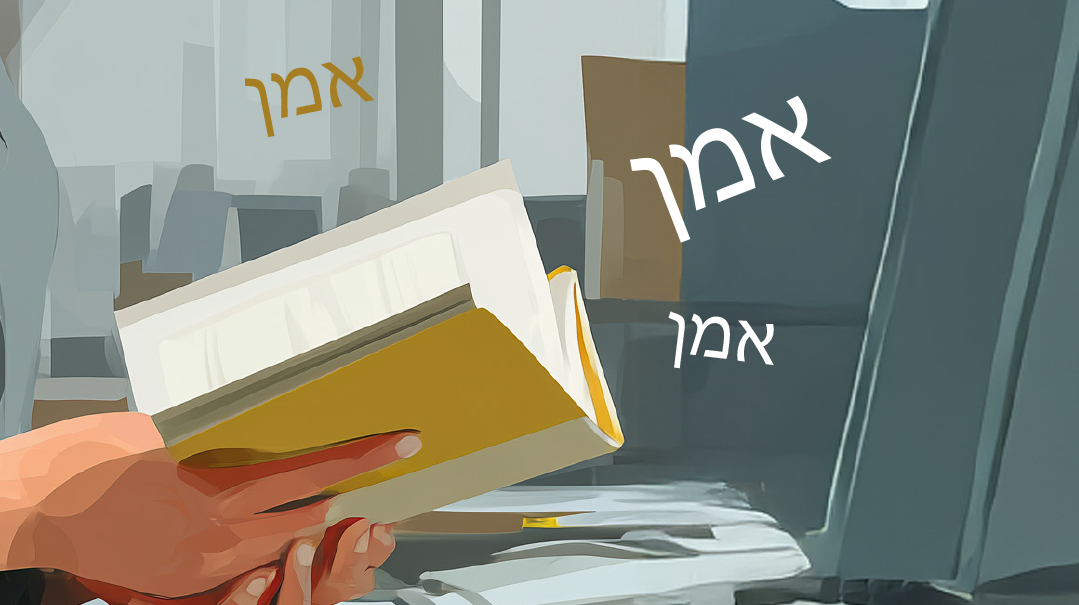Yom Tov 101

Eruv tavshilin, Tashlich, tefillah, and more

Prepared for print by Faigy Peritzman
This year Rosh Hashanah is immediately followed by Shabbos. When may I start preparing food for the second night? For the night of Shabbos? Is there anything I should say before starting to prepare at night?
On the first day of Rosh Hashanah you may not prepare any food that is going to be served exclusively on the second night of Rosh Hashanah. All preparations for the second night meal may begin immediately after nightfall, and nothing needs to be said before beginning the preparation. Preparations include cooking or warming the food, setting the table, lighting the candles, and washing the dishes. If necessary, it is permitted to merely remove frozen food from the freezer during the day [in order to give it enough time to thaw], making sure to do so early enough so that the frozen food would technically be edible during the day.
All food preparation for Shabbos is permitted on the second day of Rosh Hashanah (starting Thursday night) as long as you made a proper eiruv tavshilin on Erev Rosh Hashanah.
We just got married, and while I know my father used to do an eiruv tavshilin, I never really paid attention to when he did it, and what exactly we need to do. Could you clarify?
On Erev Rosh Hashanah, you or your husband should put together a bit of cooked food (fish, chicken, eggs, etc.) and a loaf of challah or a piece of matzah, hold the food items in your hands, and recite the blessing and text for eiruv tavshilin, published in all siddurim and machzorim. If you forgot to do so and only remembered about it on Yom Tov, ask your rav what can be done about preparing Shabbos food.
I generally try to get to shul on Rosh Hashanah, but I never make it there in the very beginning. What are the parameters for when I should catch up in the davening, or when I should just keep up with the tzibbur?
Daven at the pace that best allows you to concentrate and focus on what you are saying. If davening along with the tzibbur elevates your davening, daven Shemoneh Esreh and then skip to where the tzibbur is holding.
In the ezras nashim, I see many different behaviors regarding when to stand during tefillah and when not. As I have issues with my back, I wanted some clarity as to which parts of the tefillos of Yamim Noraim are critical to be standing.
Standing is required when davening the silent Shemoneh Esreh, answering Kedushah, reciting the Vidui, and listening to the Shofar during Mussaf (standing while listening to the shofar before Mussaf is customary but not required). While it is customary and appropriate to stand when the aron kodesh is open, weak or elderly people do not need to stand.
There’s a pond with fish a 25-minute walk from our shul, which many people walk to on Rosh Hashanah. Are there any other options at home I can use to say Tashlich, or can I put off Tashlich until after Yom Tov when I can drive to the pond?
While it is preferable for Tashlich to be said in front of a body of water that contains fish, it is by no means required, as Tashlich is recited in front of any body of water. There are also different customs as to when Tashlich is recited: While most people say it on the first day of Rosh Hashanah, there are others who recite it on the day before Erev Yom Kippur (the day we recite the 13 Middos Harachamim in Selichos), while some delay it all the way until Hoshana Rabbah.
On Erev Yom Kippur, can I still eat once I’ve bentshed after the Seudah Hamafsekes?
As long as you stipulate, either verbally or mentally, that you are not accepting the fast at the time of bentshing, then you may continue to eat and drink (and wear shoes or wash any part of your body) until the time of kabblas yom tov.
I am switching off going to shul on Yom Kippur with my neighbor, and she will be going on Yom Kippur night. Should I say Kol Nidrei at home?
You should say Kol Nidrei at home. Although the primary reason for Kol Nidrei is to annul past oaths and vows, which can only be done in front of a beis din, which you don’t have at home, Kol Nidrei is also a declaration that cancels out (to a certain degree) any future vows and oaths that you may make in the coming year. This declaration does not need to be made in front of a beis din, so there is a purpose for you to say Kol Nidrei even though you are alone at home.
Since Yom Kippur falls out on Shabbos this year, should my 11-year-old son make Kiddush before eating on Yom Kippur?
No one who must eat on Yom Kippur needs to recite Kiddush, even those who must eat for health reasons, and even when it falls on Shabbos. But if lechem mishneh is readily available it should be used, and retzeh and yaaleh v’yavo may be added during Bircas Hamazon.
I take critical medications every morning, which my doctor says I cannot miss. What is the proper way to swallow pills on Yom Kippur?
If the doctor says that by missing the pills you are potentially endangering your life, then you may take the pills. If you must have water in order to swallow the pills, do so with 1 fl. oz (29.5 cc) of water or less.
I know every year at Havdalah for Yom Kippur we use a candle that was lit before Yom Kippur. If my candle goes out, must I seek a flame from a neighbor?
You need to make every effort to seek such a flame from a neighbor, and if none can be found, the brachah over the candle is not said. Under extenuating circumstances, the brachah may be said over a candle that was lit from a candle that was lit before Yom Kippur. This year, since Motzaei Yom Kippur falls on Motzaei Shabbos we are more lenient, and if one does not have access to a candle that was lit before Yom Kippur, then the brachah is made over a newly lit candle, just like on any Motzaei Shabbos.
I was invited out for a Succos meal, but then found out that their succah is very small, and the women won’t be eating under the sechach. Is it better to decline the invitation and seek a different place?
Since women are not obligated in the mitzvah of sitting in the succah, there is no reason for you to decline the invitation.
Every year there are invariably decorations that fall during the first days of Succos. May I rehang them or replace them on Chol Hamoed?
There is no reason why rehanging or replacing decorations during Chol Hamoed should be forbidden. Decorations are not muktzeh during Chol Hamoed. There is also no concern of forbidden melachah, since decorations are hung in a nonprofessional manner and are necessary for the moed.
(Originally featured in Family First, Issue 912)
Oops! We could not locate your form.







